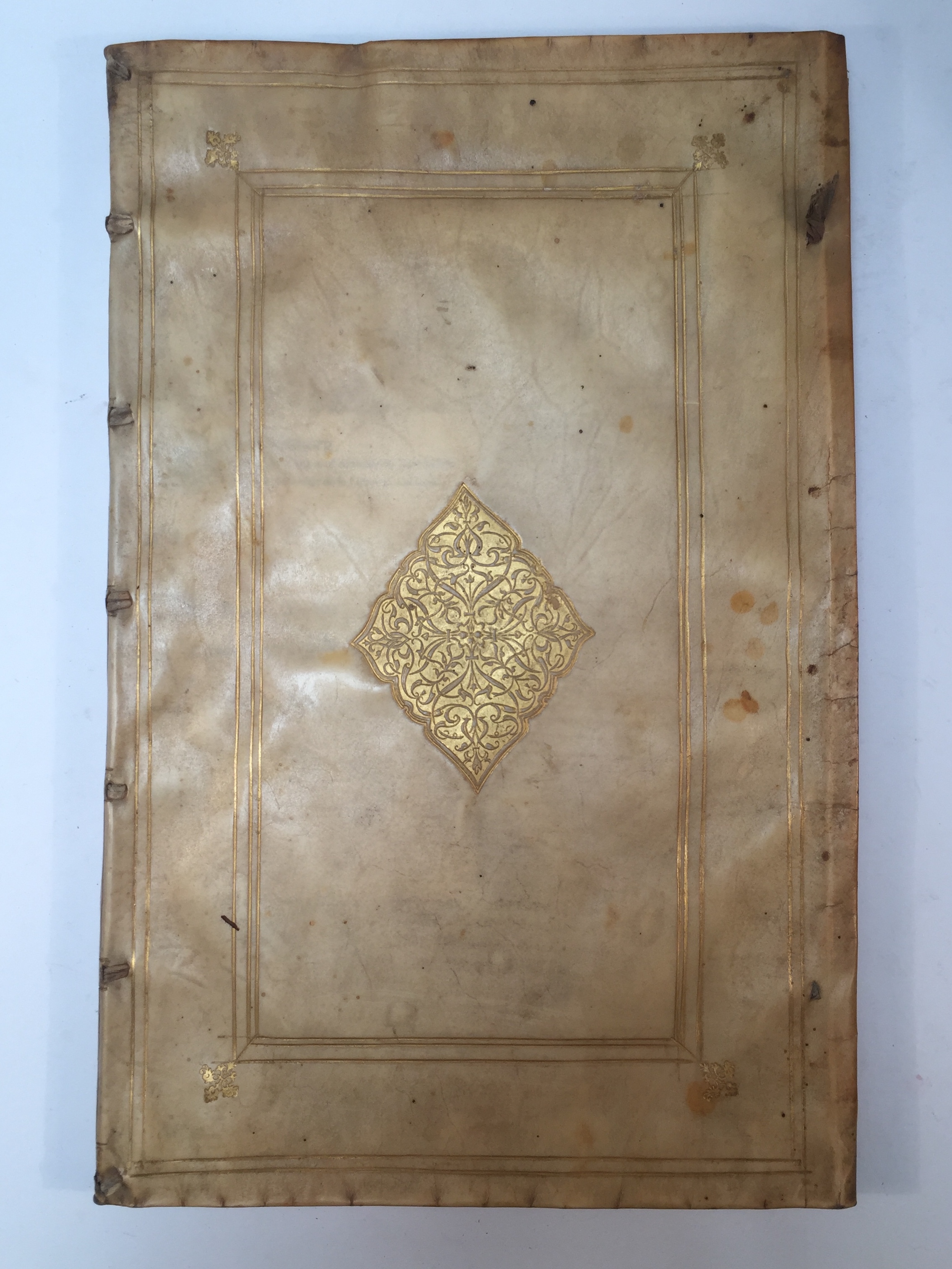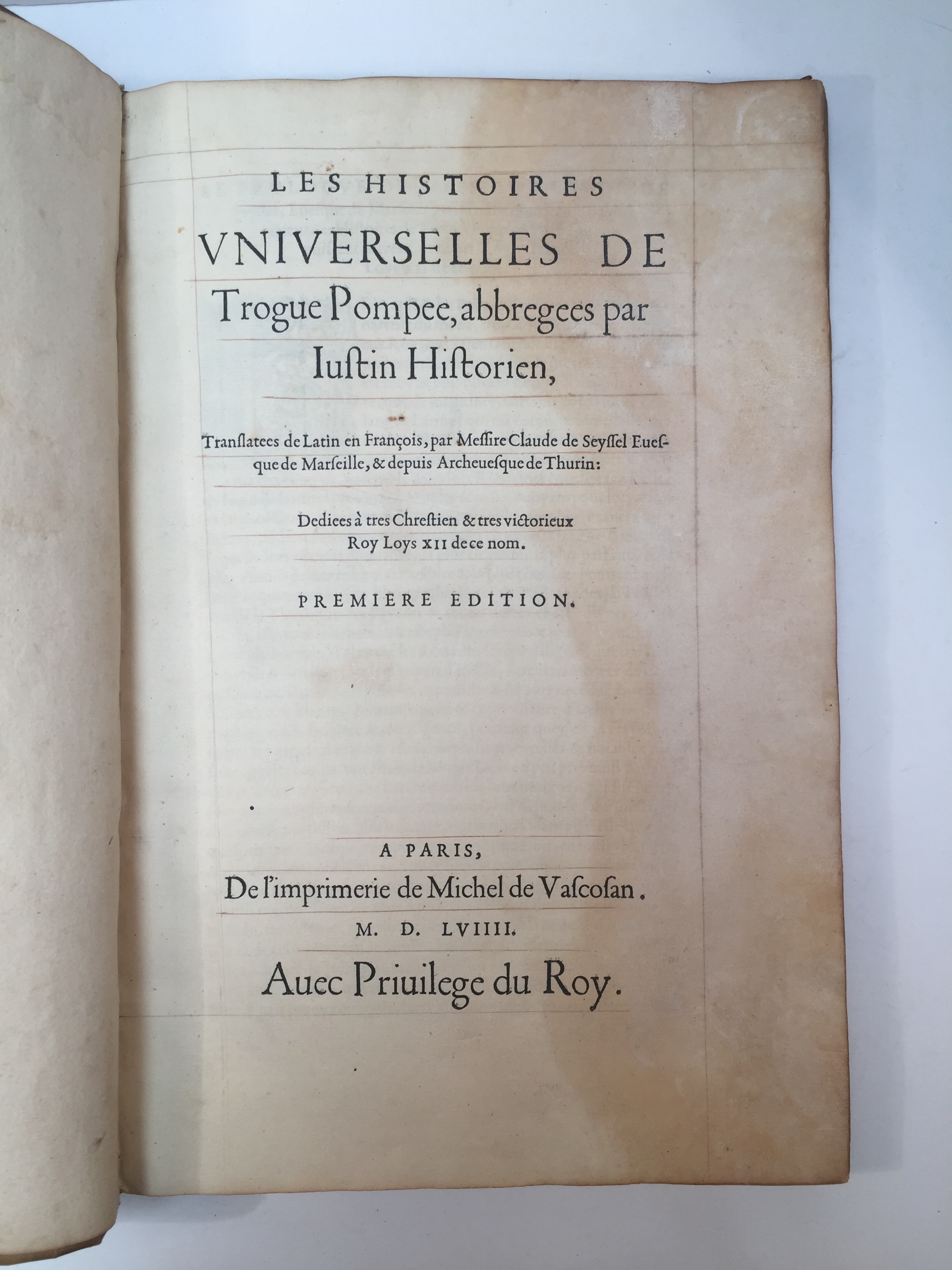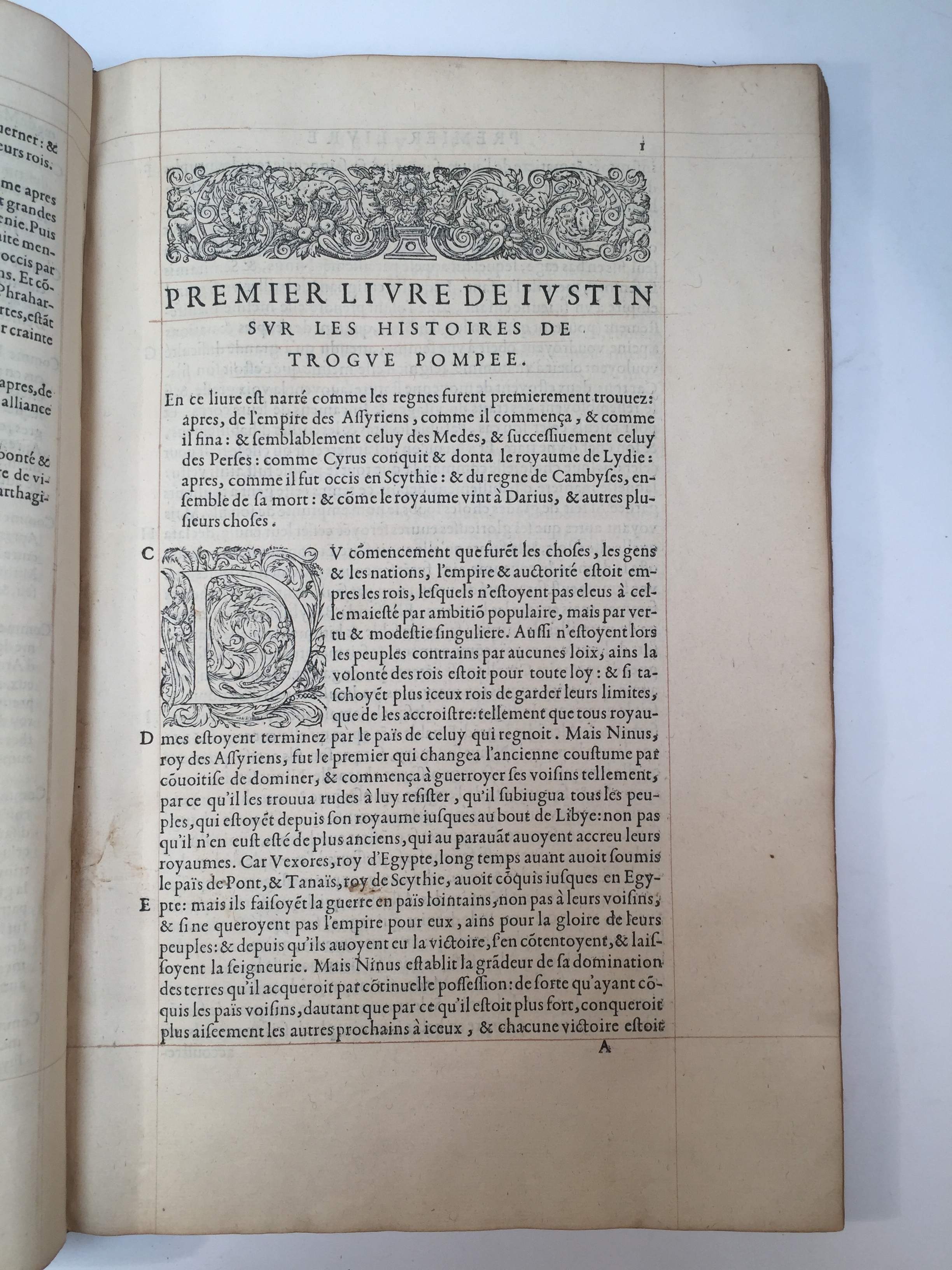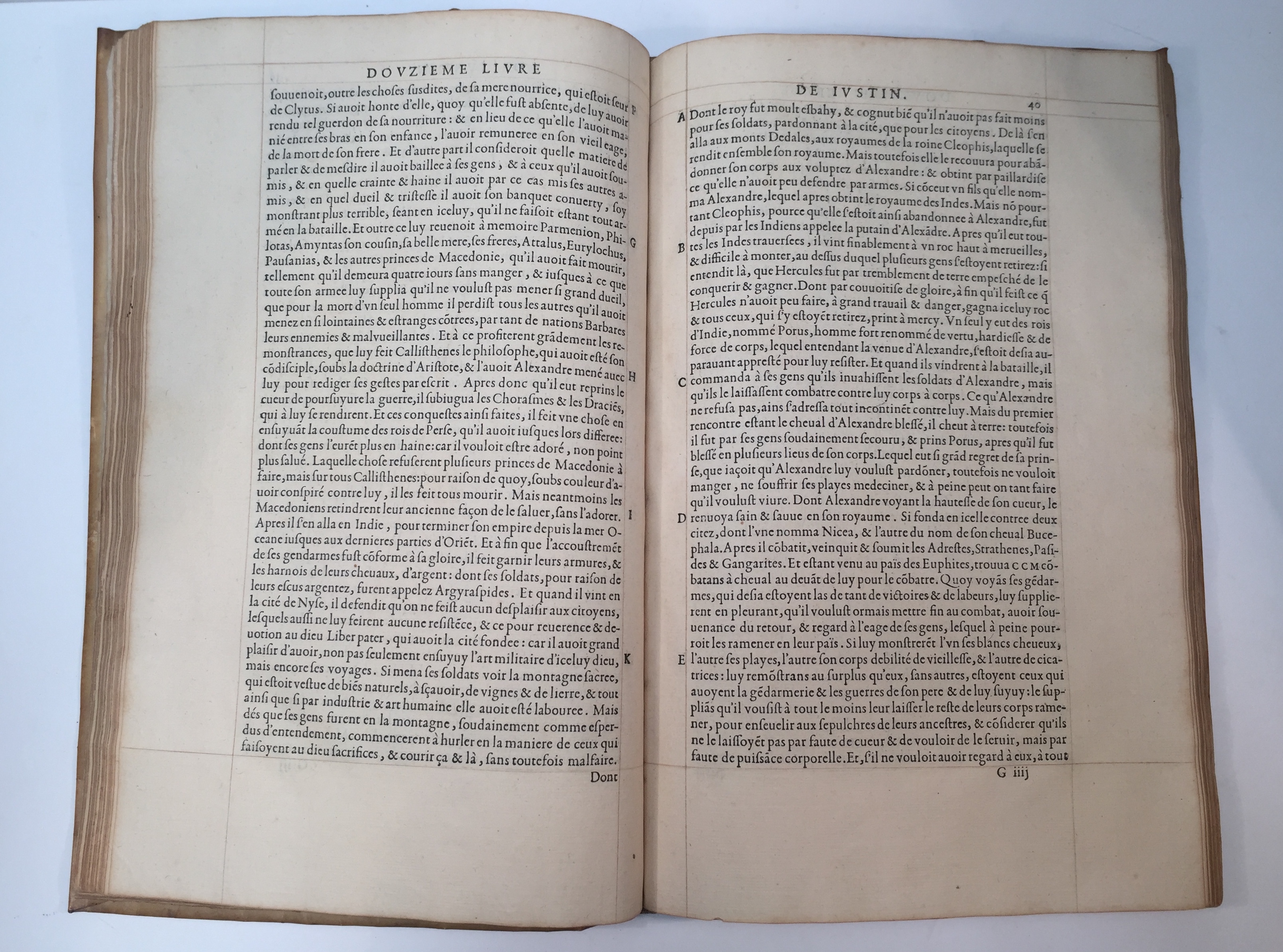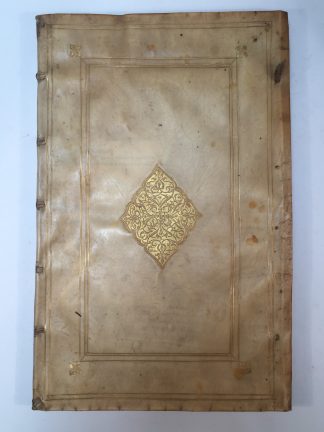JUSTINUS, Marcus Junianus
Les histoires universelles de Trogue Pompee.
Paris, Michel de Vascosan, 1559£9,500.00
FIRST EDITION thus. Folio. ff. [vi] 104 [ii]. [aa6, A-R6, S4. (S4 blank)]. Roman letter, entirely ruled in red. Large grotesque woodcut initials and head-pieces. Light age yellowing, light water stain towards outer margin of title, and a couple of fore-edges. A fine copy, crisp and clean with excellent margins in beautiful contemporary limp vellum gilt, covers double and triple gilt ruled to a panel design, fleurons gilt to corners of outer panel, large scroll worked arabesque gilt stamped at centres, spine gilt ruled in compartments with bands gilt worked with floral tools, large rose tool gilt at centres, remains of alternate red and white silk ties, yapp edges, a.e.r. lower cover slightly warped at head
A beautiful copy of the first edition of Claude de Seyssel’s influential translation of Justinus’ history, with his important dedication to Louis XII, finely printed by Vascosan the year before he was made King’s printer. Justinus was a second century Roman historian. He describes this, his most notable work, as a collection of the most interesting and important passages from Pompeius Trogus’ ‘Historiae philippicae et totius mundi origina et terrae situs’, written in the time of Augustus and now lost. This was a general history of those parts of the world that had come under the auspices of Alexander the Great, and takes as its main theme the Macedonian Empire founded by his father Philip. The last event it records (in Justinius’ version) is in 20 B.C. Through his frequent digressions, Justinus here produces not an epitome but rather a useful and sometimes elegant anthology based on the work. It was very popular in the Middle Ages, when the author was frequently confused with Justin Martyr
Claude de Seyssel, (c.1450-1520) was a Savoyard scholar, diplomat, and churchman, successively Bishop of Marseille and archbishop of Turin. He served under Louis XII and was sent on diplomatic missions in Flanders, Switzerland, England and Italy. He collaborated with the Byzantine refugee Janus Lascaris on translations of ancient Greek historians, Lascaris translating from Greek to Latin and Seyssel from Latin to French; between them they produced the first French translations of Herodotus, Thucydides, Diodorus, Appian, Xenophon. His dedication to Louis the XII in this volume is most interesting: “Claude de Seyssel uses his inventory of exemplary historical episodes to identify a set of specific language policies, which he in turn urges the monarch to adopt …Seyssel then showers praise on the Norman knights who brought French to England in 1066: ‘for example Duke William of Normandy, bastard of France, who was a very wise and valiant Prince, and the first of his dynasty, who conquered the Kingdom of England, and wishing to perpetuate his line and nation, bestowed to the English the Norman laws in writing, in the very language of Normandy, which they still use today.’ Seyssel closes his discussion by proposing a real-life terrain for the application of these historical lessons. Writing in the midst of Louis XII’s Italian campaigns, ..Seysell exhorts the king to prosecute the Frenchification of French-occupied Italian territories.” Thelma Fenster etc. ‘The French of Medieval England: Essays in Honour of Jocelyn Wogan-Browne.’.
BM STC Fr. C16th p. 427. USTC 20769. Brunet III 622. Peach, Poitiers no. 975. Adams J 740.In stock


